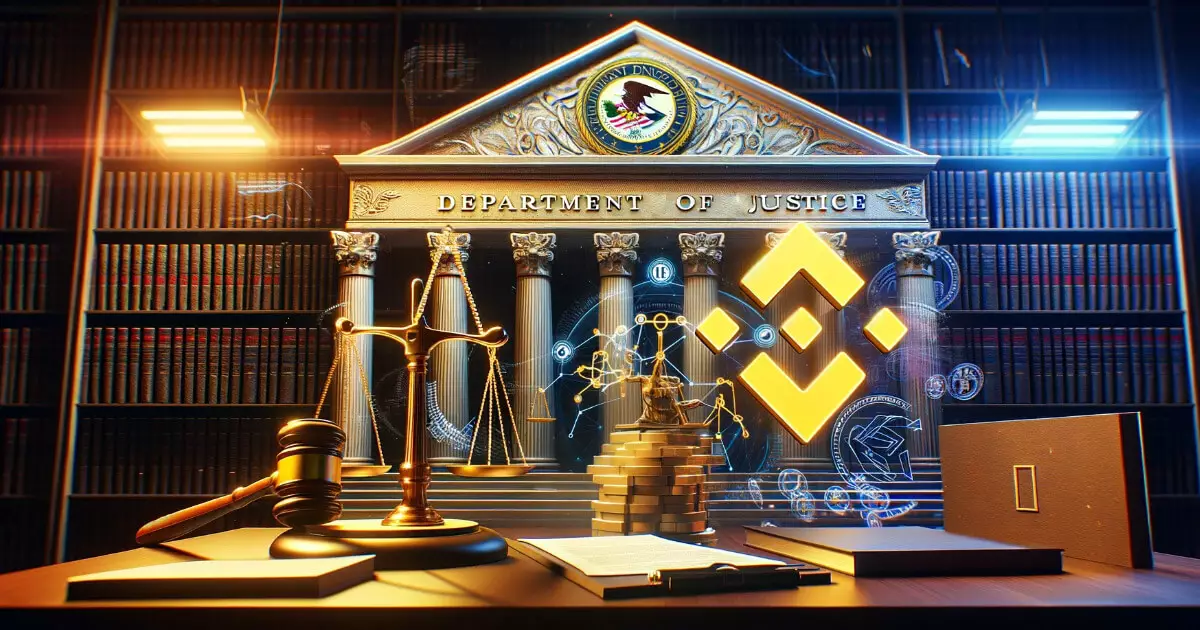The Binance case has been making waves in the cryptocurrency industry since its initial launch by the U.S. Securities and Exchange Commission (SEC) in June. However, Binance recently submitted two key filings on December 12 that shed new light on the ongoing legal battle. In this article, we will delve into the details of these filings and analyze the arguments put forth by Binance and its former CEO Changpeng Zhao. By doing so, we hope to gain a comprehensive understanding of the case and the potential implications for both Binance and the broader crypto space.
Binance’s first filing focuses on dismissing the SEC case against its companies and Changpeng Zhao. It argues that the SEC has not plausibly alleged that various Binance tokens and services are securities or investment contracts. By challenging the SEC’s claims, Binance seeks to establish that its offerings do not fall within the scope of securities law. This move aims to redefine the regulatory landscape in which Binance operates.
The filing further asserts that the SEC’s specific claims surrounding Binance’s BNB token are time-barred, meaning that the offerings of this asset occurred outside of the U.S. According to Binance, this temporal limitation invalidates the SEC’s charges, as they are untimely. Additionally, Binance alleges that the SEC is attempting to apply securities law outside of the U.S. in a manner that is not permissible in relation to certain Binance.com transactions, such as BNB Vault and Simple Earn.
Binance’s defense lawyers argue that the SEC failed to provide fair notice about its securities claims, which allegedly violates the defendant’s rights. Binance asserts that the lack of informative notice should result in the dismissal of the lawsuit. Furthermore, the filing claims that the complaints against Changpeng Zhao should be dismissed due to a lack of personal jurisdiction. Binance contends that Zhao’s role in controlling the company is not sufficient grounds for jurisdiction, and the SEC has failed to prove that Zhao had relevant contact with U.S. users in connection to the case.
In a separate filing, Binance contests the SEC’s request to consider the plea deals arranged with the Department of Justice (DOJ) and other U.S. government agencies. Binance argues that the SEC’s notice fails to demonstrate the relevance of these resolutions to the securities regulator’s claims against Binance and Zhao. Binance emphasizes that the plea deals solely address violations of the Bank Secrecy Act and are unrelated to the securities and exchange acts under scrutiny.
Contrary to the SEC’s position, Binance’s filing highlights that the agency has not amended its complaint, suggesting that the SEC’s judicial notice is not a sufficient alternative to amendment. The filing raises several objections to the SEC’s claims, notably asserting that the jurisdiction defenses cited by Binance still apply to both the company and Zhao himself. Binance asserts that none of the plea agreement admissions indicate that relevant transactions occurred in the United States or that irrevocable liability was attached to them.
In its concluding remarks, Binance firmly maintains that the SEC’s notice should be disregarded entirely. The company vehemently presses for the dismissal of the case, once again asserting that the SEC failed to provide fair notice and did not establish personal jurisdiction. If successful, this motion could have significant implications not only for Binance but for the entire crypto industry.
The ongoing legal battle between Binance and the SEC is crucial for the future of the cryptocurrency landscape. Binance’s recent filings seek to challenge the SEC’s claims, focusing on dismissing the case, highlighting time-barred claims, contesting extraterritorial application, emphasizing insufficient notice, and questioning personal jurisdiction. As we await the courts’ decisions, the outcome of this lawsuit will undoubtedly shape the regulatory environment for cryptocurrency exchanges and may have far-reaching consequences for the industry as a whole.

